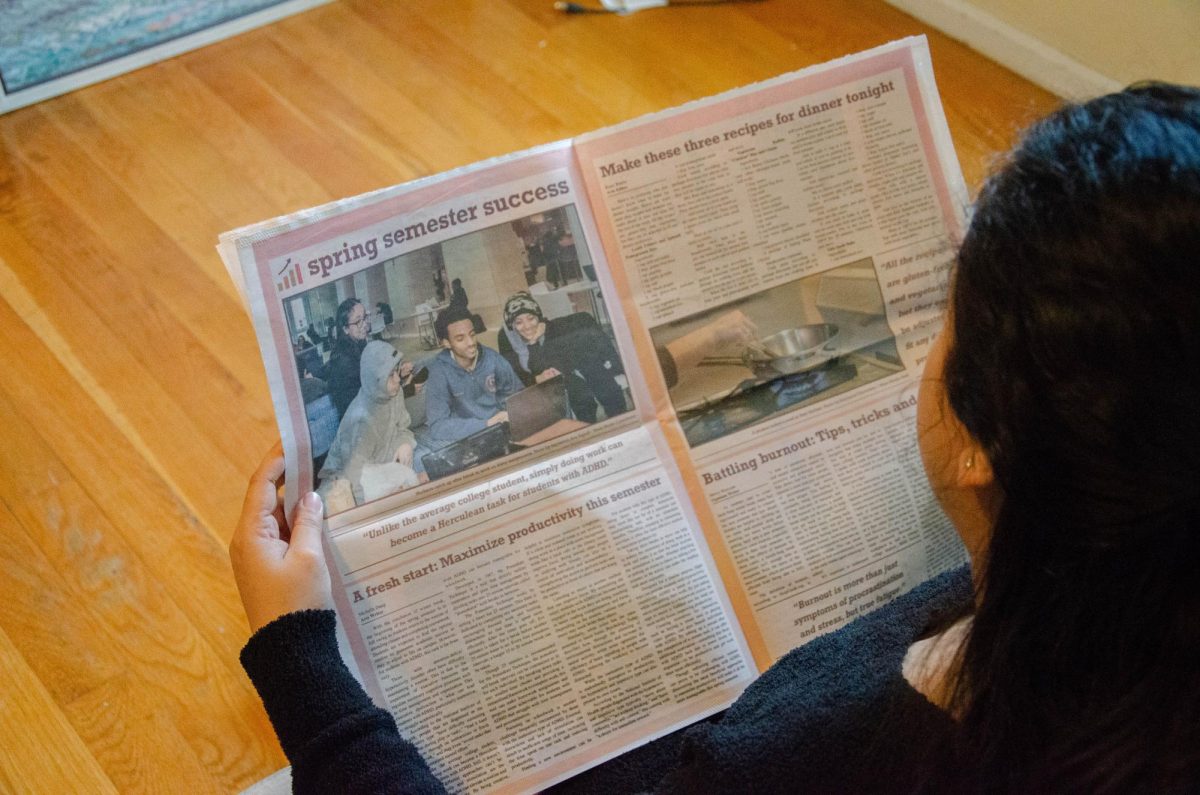On Monday, Jan. 29, UMass Boston joined Northeastern University, Boston College and Boston University in a panel discussion regarding hate and free speech. This panel, the first in a series of “Dialogue & Action in an Age of Divides,” was live streamed via the Pack Network service. [1]
The panel series was planned not only by the previously mentioned universities, but also by Brandeis University, Harvard University, Massachusetts Institute of Technology, Tufts University and Wellesley College. Although not all host universities were able to attend the first panel, the institutions that did attend had an important conversation on the significance of free speech and its limitations.
Moderating the panel was Roderick Ireland, Distinguished Professor of Criminology and Criminal Justice at Northeastern, and former Chief Justice of the Supreme Judicial Court of the Commonwealth of Massachusetts. After him was the first panelist, Kent Greenfield, a professor of the Boston College Law School.
Greenfield spoke on the limits of free speech, citing an article he authored from 2015 for The Atlantic. In it, he wrote about an incident wherein University of Oklahoma students were expelled for chanting that “they’d rather see a black student lynched” than as a member of their fraternity. [2]
Since writing that article, Greenfield’s view that the president of the university was correct in expelling the students has not changed:
“That chant was not an important part of the exchange of ideas, it did not advance knowledge, and in my view, the University was not required to ask black students to set aside their fear that a bus full of white men cheerfully singing about lynching might end badly for someone somewhere.”
According to Greenfield, universities should be more protective and have baseline rules of discourse that protect the environment of learning. Although mistakes will be made where this line is drawn, it is better that these judgments be made than none at all, because the costs fall upon the most vulnerable and marginalized of the community.
Following Greenfield was Andrew Leong, an associate professor of philosophy here at UMass Boston. As someone who is part of a minority, Leong shared his own experiences, paralleling what Greenfield said during his portion of the panel:
“No matter what the social differences are, whether it’s race, whether it’s gender, whether it’s sexual preference, whatever it may be, the minute that we as teachers, as educators, understand that something is happening, that that particular student is being made fun of, we need to control. We need to change the dynamic.”
Leong recalls incidents growing up, such as in grade school, being ridiculed by other students for not understanding English and being different. Another example was much later in life, attending law school, and there was a phrase used in class, “Chinese wall,” instead of a more neutral term like “wall of silence.” Leong was afraid that his classmates, chuckling at such a phrase, would confront him in the hallways at school.
According to Leong, freedom of speech is not equal, because not everyone has the same power and the same volume. And so, universities and educators need to make the classroom a sacred space of learning for everyone.
The third and last panelist was Andrew Sellars, a clinical associate professor of law at Boston University. While Greenfield and Leong spoke on the limits of free speech and the enforcement of spaces, Sellars examined how hate speech can be defined:
“I think in crafting rules, it will probably be helpful to be very distinct about these different areas. I am concerned about a standalone rule or standalone code, because without attending to these other power dynamics, it could actually just exacerbate our problems.”
Hate speech is difficult to define without examining pre-existing power dynamics. According to Sellars, it is important to consider how certain words and phrases may be used and interpreted differently across and between groups of people.
The full panel is available to watch on-demand now on Northeastern University’s website. The next panel in the series will be a discussion on Feb. 13 of “Finding Common Ground Across Identities and Political Divides.” [3] [4]





















































